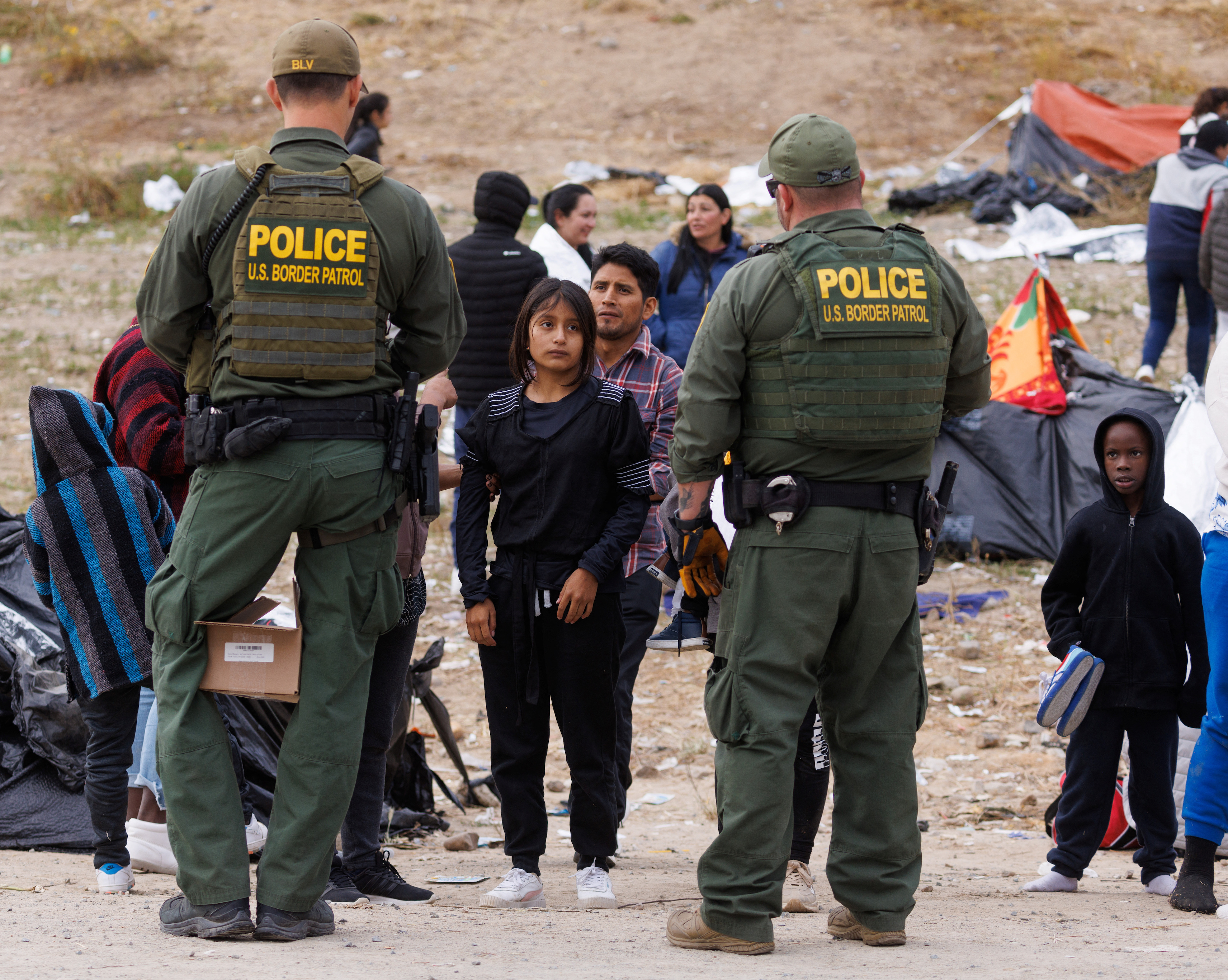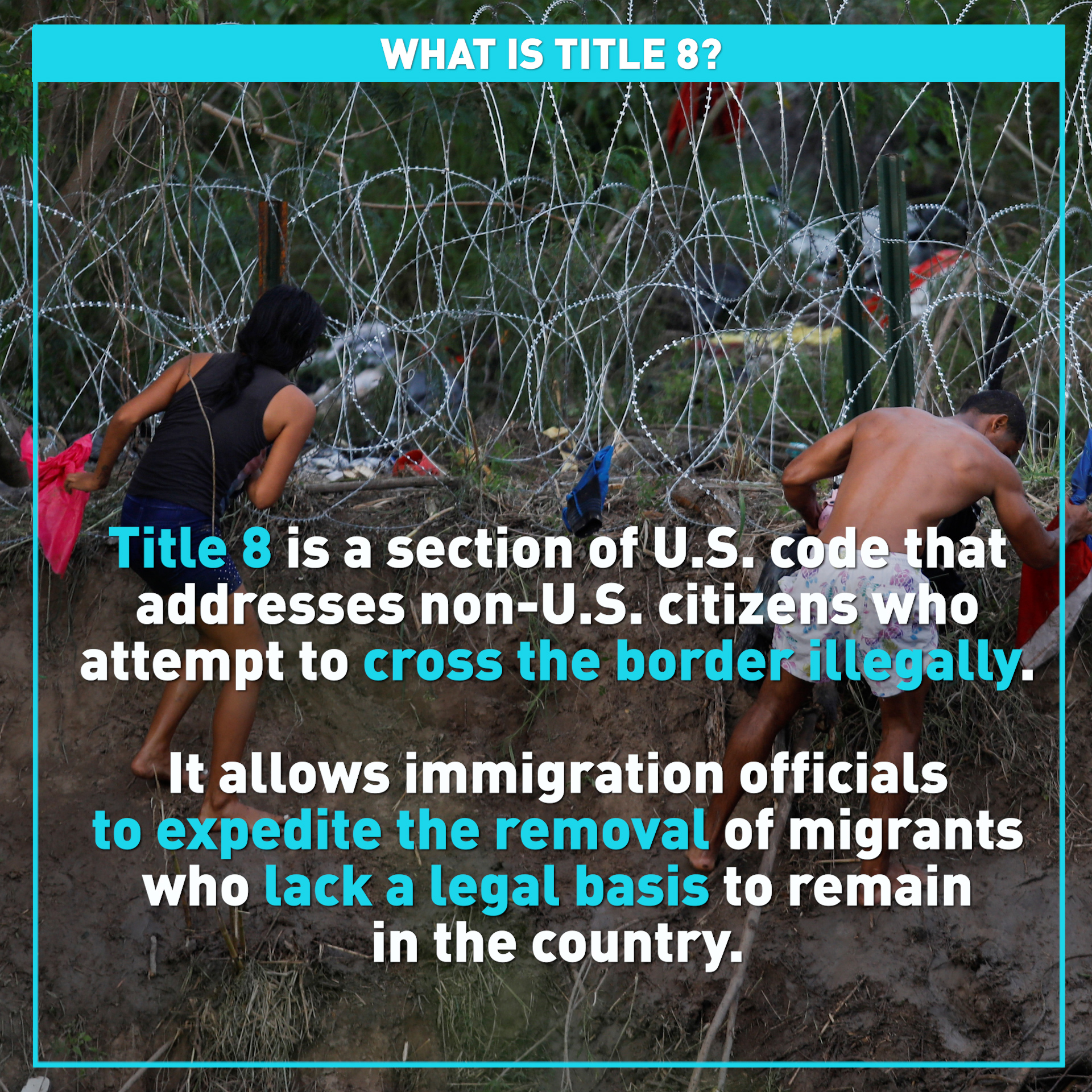
U.S. border patrol agents watch over migrants gathered between the primary and secondary border fences near San Diego, California, as the U.S. prepares to lift COVID-era Title 42 restrictions
U.S. border patrol agents watch over migrants gathered between the primary and secondary border fences near San Diego, California, as the U.S. prepares to lift COVID-era Title 42 restrictions
Title 8 is the U.S. "law of the land" when it comes to immigration. Title 42 was an emergency measure used during the pandemic to stop the spread of COVID-19. With the expiration of Title 42 on Thursday, Title 8 takes center stage once more. Here are some things to know.
Title 8 is a section of U.S. code that addresses non-U.S. citizens who attempt to cross the border illegally.
It allows immigration officials to expedite the removal of migrants who lack a legal basis to remain in the country. Title 8 also gives migrants who enter the country illegally the opportunity to apply for asylum if they can prove persecution or other specific dangers at home.
Under the pandemic-era Title 42, migrants from Cuba, El Salvador, Guatemala, Haiti, Honduras, Mexico, Nicaragua or Venezuela who were found attempting to cross into the U.S. illegally were immediately screened and could be quickly kicked out of the U.S. and into Mexico to prevent the spread of COVID-19.

Click arrows to view gallery
Click arrows to view gallery
Now, families and single adults found at the border without proper documentation will be processed under the Title 8 authority, according to U.S. Customs and Border Protection Deputy Commissioner Benjamin C. Huffman.
"Once Title 42 is no longer in place, we will process families and single adults at the border without proper documentation using (the Department of Homeland Security's) long-standing Title 8 authority," Huffman said. "We're going to do an expedited [removal] for single adults."
Detained migrants who express "credible fears" of returning to their home country can now be referred to a U.S. asylum officer for an interview under Title 8 rules.
If a migrant "passes" the interview, their asylum claim will go in line for processing and they can be temporarily released into the U.S.
If a migrant "fails" the interview with an asylum officer, they can be deported back to their country of origin, and given a five-year-ban on reentry under Title 8 rules.
Migrants from Cuba, Haiti, Nicaragua, Venezuela, Ukraine and Afghanistan are expected to be eligible for humanitarian parole, according to New York Times research. Only 30,000 humanitarian parolees will be admitted to the U.S. per month.
For the selected nationalities to attain humanitarian parole and the chance to live in the U.S. for two years, applicants must have a sponsor file an application online.
Under Title 42 there were no penalties for attempting to cross into the U.S. after previously being deported, but under Title 8, anyone attempting multiple entries could be prosecuted.
The U.S. government has announced two regional screening centers for migrants, located in Colombia and Guatemala, to help those seeking asylum avoid making the dangerous trek to the U.S.-Mexico border.
U.S. Homeland Security Secretary Alejandro Mayorkas said Thursday amid the swell of hopeful immigrants amassed on the border that the U.S. borders are closed. Mayorkas added that he cannot overstate the strain on U.S. personnel and facilities from the illegal crossings.
For more, check out our exclusive content on CGTN Now and subscribe to our weekly newsletter, The China Report.